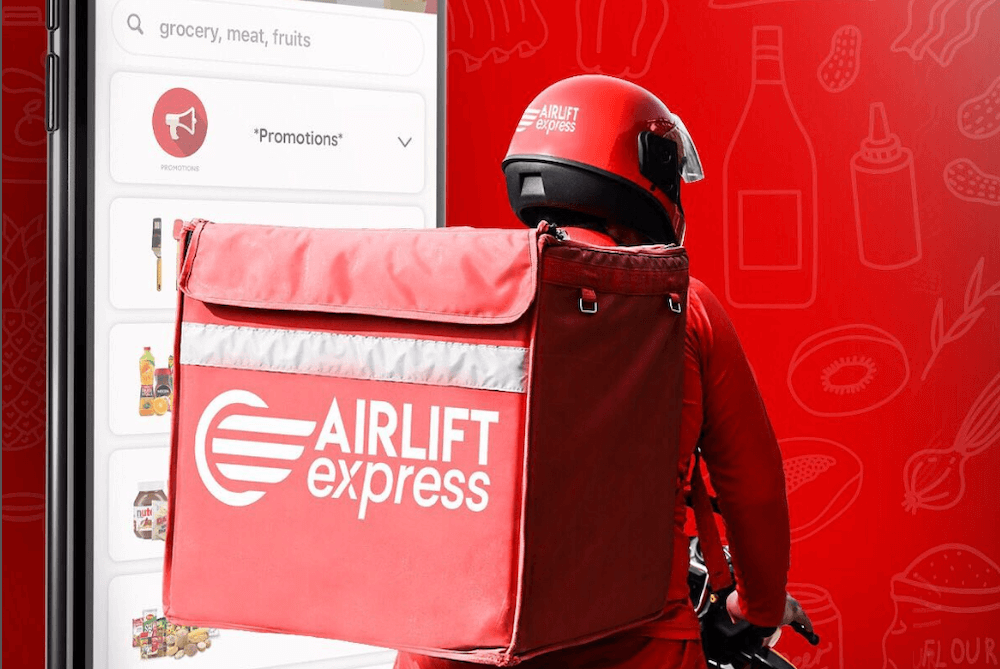ImpactAlpha, July 20 – Airlift became a darling of Pakistan’s venture capital scene last year when it raised $85 million in Series B financing from a slew of foreign investors. The deal signaled the big opportunities for fast-growing startups in a still-nascent and often overlooked market.
Now Airlift has crash-landed.
The startup’s shutdown reflects the volatile economic conditions that have accompanied successive stages of the Covid pandemic.
Lahore-based Airlift started as a ride-sharing company. When passengers disappeared in the early days of the pandemic, the company shifted to grocery delivery. The pivot paid off in the short-term. Foreign investors, once cautious about investing in Pakistan and other frontier markets, pumped tens of millions into the country amid last year’s VC frenzy, particularly in the instant delivery market.
Airlift’s Series B round was the largest VC deal in Pakistan last year.
Other fast-delivery companies also benefited from consumers’ twin needs for convenience and social distancing. Companies like Turkey’s Getir, Germany’s Flink and Gorillas, and the US’s goPuff, grew quickly in response to the pandemic by promising customers deliveries in as little as 10 minutes. Those companies each raised more than $1 billion in successive, arguably inflated, rounds.
Customer demand for such convenience wasn’t reliable, however, and the unit economics weren’t sustainable.
Now, these cash-guzzling companies have been laying people off in droves and shutting distribution centers. Others, like Airlift, are closing up completely.
Hyped up
Pakistan, like most markets, had a banner year for VC funding in 2021 (relatively speaking: startups collectively raised $350 million). The collapse of such a high-profile startup stunned Pakistan’s VC community.
Airlift became further squeezed when the VC market began contracting; it was unable to raise a Series C round.
Low-margin business models are now being hammered by the rising cost of food and consumers’ price sensitivities. This turn hit Airlift particularly hard because Pakistan as a market “is more price sensitive and doesn’t value convenience as much,” says Misbah Naqvi of I2I Ventures, an early-stage venture fund based in Karachi.
Ride-hailing startups in Pakistan are also having problems. Careem and Swvl, along with other ride-hailing companies operating in Pakistan have laid off people, or scaled back operations.
But local investors insist the setbacks are not indicative of the potential for the country’s broader startup ecosystem.
“In a global downturn, it’s important to look at startups that are building products and services that fill a need and add real value to people’s lives, rather than nice to haves,” observes Naqvi. “Quick commerce is a challenging space globally. Pakistan is no exception.”
Impact and opportunity
Naqvi believes the incident will be a wake-up call to investors about the real risks and opportunities in Pakistan.
Fintech companies that support small businesses and workers, for example, have continued to attract capital. In March, I2I, Deosai Ventures, Outliers Venture Capital and others backed Metric, which provides digital accounting services for small businesses. Abhi, a startup providing workers access to their earned wages ahead of the normal payday, also raised funding this year.
In other sectors, woman-led medIQ provides on-demand virtual healthcare services, while Farmdar is connecting farmers with data insights for their fields.
“There are spaces here where there are still opportunities to build even when the economy is shrinking,” Naqvi says. “There are startups here that are helping people save money, live more efficiently, and fulfilling needs that are important.”











